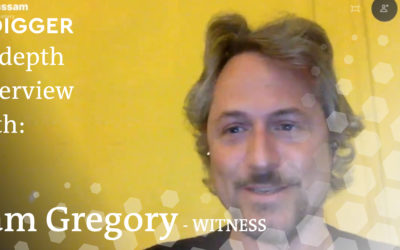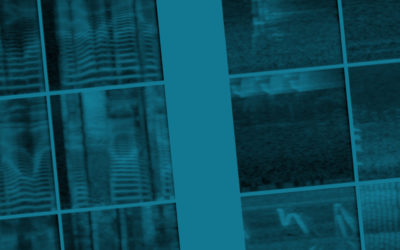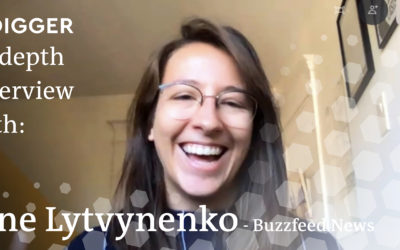Sam Gregory is Program Director of WITNESS, an organisation that works with people who use video to document human rights issues. WITNESS focuses on how people create trustworthy information that can expose abuses and address injustices. How is that connected to deepfakes?
Train Yourself – Sharpen Your Senses
Train Yourself – Sharpen Your Senses
Verification is not just about tools. Essential are our human senses. Whom can we trust, if not our own senses?
“The world is full of magic things, patiently waiting for our senses to grow sharper.”
(W.B. Yeats)
We created a training for you, so that you are able to take full advantage of your senses. In this training you will find exercises to sharpen your vision and hearing skills. Each activity has three exercises at three levels: easy, medium and advanced.
Doing these exercises will make you more confident to detect the almost (in)visible traces in synthetic and manipulated media like blurred spots, missing pieces or a change of voice emphasis and cut & paste manipulation within a speech.
Can’t wait? There is no need to. Dive straight into the training and Sharpen Your Senses!
Ps: Go full screen and a chrome browser for the optimal experience.
Don’t forget: be active and responsible in your community – and stay healthy!
Related Content
In-Depth Interview – Sam Gregory
Audio Synthesis, what’s next? – Parallel WaveGan
The Parallel WaveGAN is a neural vocoder producing high quality audio faster than real-time. Are personalized vocoders possible in the near future with this speed of progress?
In-Depth Interview – Jane Lytvynenko
We talked to Jane Lytvynenko, senior reporter with Buzzfeed News, focusing on online mis- and disinformation about how big the synthetic media problem actually is. Jane has three practical tips for us on how to detect deepfakes and how to handle disinformation.



